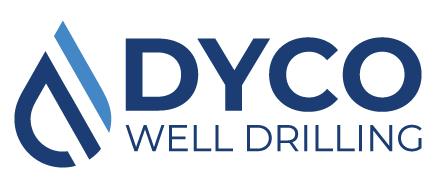When it comes to securing a reliable and sustainable water source for your property, well drilling is a topic that deserves careful consideration. Whether you are a homeowner or a business owner, understanding the ins and outs of well drilling can prove to be invaluable. Is it necessary for your property? What are the benefits and potential challenges? In this comprehensive guide, we will delve into the world of well drilling, exploring the reasons why it may be a worthwhile investment for your property. From explaining the process and costs involved to highlighting the potential advantages and factors to consider, this article aims to provide you with all the information you need to make an informed decision about well drilling and its suitability for your specific needs.
What is well drilling and how does it work?
Well drilling is the process of creating a hole or well in the ground to access groundwater for various purposes such as irrigation, drinking water supply, or industrial use. It involves drilling deep into the earth’s surface until reaching an aquifer, which is a layer of permeable rock or soil that holds water.
The process of well drilling begins with site assessment and planning. A professional drill rig operator will evaluate the property to determine the best location for drilling based on factors such as water availability, geology, and accessibility. Once the site is selected, the drilling equipment is set up, which typically includes a drill rig, drilling pipe, and various tools.
The drilling process itself involves using rotary drilling techniques, where the drill bit is rotated to break through the soil and rock layers. As the drilling progresses, mud or water is used to lubricate the drill bit and remove the cuttings from the hole. The drilling continues until the desired depth is reached or until an adequate water source is found.
Once the drilling is complete, a casing is installed to secure the well and prevent contamination. The casing is typically made of materials such as PVC or steel and is inserted into the hole to create a protective barrier. A screen is also placed around the casing to filter out any debris.
After the well is drilled and the casing is installed, a pump system is added to extract water from the well. The pump system can be customized based on the specific needs of the property, such as the water demand and pressure requirements.
It is important to note that well drilling is a complex process that requires professional expertise and equipment. Hiring a reputable drilling company ensures that the job is done safely and efficiently, following all local regulations and guidelines.
Determining whether well drilling is necessary for your property depends on various factors, including the availability and quality of existing water sources, the water demand, and your long-term water needs. Consulting with a professional well driller can help you assess your specific circumstances and make an informed decision about whether well drilling is the right choice for you.
Assessing the need for well drilling on your property
When it comes to water supply, many property owners rely on municipal sources or private wells. If you’re considering well drilling for your property, it’s important to assess the need and viability before making a decision. The first step is to determine if your property has access to an adequate and reliable municipal water supply. If your current supply meets your needs without any issues, well drilling may not be necessary. However, if you frequently experience water shortages, low water pressure, or have concerns about water quality, drilling a well can provide a sustainable and reliable solution. Another important consideration is the cost. Well drilling can be a significant investment, and it’s crucial to evaluate the long-term financial implications. Consider factors such as installation costs, ongoing maintenance, and potential regulations or permits required for drilling. Additionally, assess the geographical features of your property, such as soil conditions and groundwater availability. Consulting a professional well drilling company can provide valuable insights into the viability and potential challenges associated with drilling on your specific property. Ultimately, the decision to drill a well should be based on a comprehensive evaluation of your unique circumstances, needs, and resources.
Benefits of well drilling
Well drilling can be a beneficial option for property owners, providing numerous advantages that make it worth considering. One of the main benefits of well drilling is the access to a reliable and independent water source. By having your own well, you are not reliant on a municipal water supply, which can be subject to interruptions or quality issues. With a well, you have control over your water supply, ensuring a constant and clean source for your household needs.
Another advantage of well drilling is the potential cost savings in the long run. While there is an upfront investment involved in drilling a well, it can lead to significant savings over time. With a well, you eliminate monthly water bills, which can accumulate to considerable amounts over the years. Additionally, the cost of maintaining and treating municipal water can be avoided, putting money back in your pocket.
Furthermore, well water is often considered to be healthier and free from chemicals often found in treated municipal water. You have the ability to control the quality of your water and can choose to implement additional filtration systems for further purification if desired. This can provide peace of mind knowing that you and your family are consuming clean and fresh water.
In addition to the practical benefits, well drilling can also increase the value of your property. Many homebuyers value the independence and sustainability that comes with having a private well. It can be seen as a valuable asset, especially in areas where water scarcity or quality concerns exist.
Ultimately, the decision to invest in well drilling depends on your specific property and needs. Assessing factors such as water availability, cost considerations, and long-term benefits is crucial. Consulting with a professional well drilling company can provide valuable insights and help you determine if it is the right choice for your property.
Factors to consider before proceeding with well drilling
Before proceeding with well drilling on your property, there are several important factors you should consider. Firstly, you need to determine the water needs of your property. If you live in an area with a reliable and readily available municipal water supply, drilling a well may not be necessary. However, if you are located in a rural area or have a large property with high water demands, drilling a well can provide a sustainable and cost-effective solution.
Secondly, it is crucial to assess the geology of your property. Consult with a professional to determine the depth and quality of the groundwater in your area. This will help you understand whether drilling a well is a viable option and estimate the potential yield of the well. It is also important to consider any potential contaminants or pollutants that may be present in the groundwater and take appropriate measures to ensure water quality.
Additionally, you need to be aware of the legal and regulatory requirements associated with well drilling in your area. Obtain the necessary permits and comply with any local regulations to ensure a smooth and legal drilling process. It may be helpful to consult with a local drilling company or water resource management agency to navigate through the permitting process.
Lastly, consider the financial implications of well drilling. While drilling a well can be a long-term cost-saving measure, it does require an initial investment. Take into account the costs of drilling equipment, professional services, maintenance, and any necessary water treatment systems. Assess your budget and weigh the potential benefits against the upfront and ongoing expenses.
By thoroughly considering these factors, you will be able to make an informed decision about whether well drilling is necessary and beneficial for your property. It is recommended to consult with professionals in the field to ensure you have all the necessary information and guidance before proceeding with any drilling activities.
The cost of well drilling and potential challenges
When considering well drilling for your property, it’s important to weigh the costs and potential challenges that may arise. Well drilling is a significant investment, and the expenses can vary depending on various factors such as the depth of the well, the equipment required, and the location of your property.
The cost of well drilling includes not only the initial drilling process but also additional expenses such as obtaining permits, installing a pump system, and ensuring proper water filtration. These costs can add up quickly, so it’s crucial to have a clear understanding of your budget and the financial implications before embarking on this endeavor.
Aside from the financial aspect, there can also be potential challenges involved in well drilling. One common challenge is the uncertainty of the water source and quality. While drilling a well can provide a reliable and independent water supply, there is no guarantee that the well will yield sufficient water or that the water will meet your needs. Conducting a thorough assessment of groundwater availability and quality in your area is essential to mitigate these uncertainties.
Another challenge to consider is the maintenance and upkeep of the well. Regular inspections, testing, and servicing are necessary to ensure the well’s longevity and the quality of the water it provides. Neglecting maintenance can lead to issues such as contamination, decreased water flow, or even the need for costly repairs.
Furthermore, the process of well drilling itself can present logistical challenges, especially if your property has limited access or difficult terrain. It may require specialized equipment and experienced professionals to overcome these obstacles, potentially adding to the overall cost.
Before deciding if well drilling is necessary for your property, it’s crucial to thoroughly evaluate the cost, potential challenges, and benefits that come with having a private water supply. Consulting with a professional well drilling company can provide valuable insights and guidance to help you make an informed decision that aligns with your needs and circumstances.
Conclusion: Is well drilling necessary for your property?
Deciding whether well drilling is necessary for your property is a personal choice that depends on various factors. If you live in an area with limited access to municipal water supply or if you prefer to have control over your water source, well drilling may be a viable option for you. It can provide you with a self-sustaining water supply that is not dependent on external factors.
However, before making a decision, it is important to consider the costs and potential challenges associated with well drilling. The initial investment can be significant, including the costs of drilling equipment and professional services. Additionally, ongoing maintenance and potential repairs should be taken into account.
Furthermore, the availability of groundwater and its quality should be thoroughly evaluated. Conducting a hydrogeological survey and water testing can help determine the feasibility of well drilling on your property.
Ultimately, the decision to drill a well should be based on your unique circumstances and priorities. Consulting with professionals in the field, such as hydrogeologists and well drilling contractors, can provide valuable insights and guidance.
In conclusion, well drilling can be a beneficial option for some property owners, providing independence and control over their water supply. However, careful consideration of costs, maintenance, and water availability is necessary before making a final decision. It is advisable to seek professional advice to ensure that well drilling aligns with your specific needs and circumstances.

